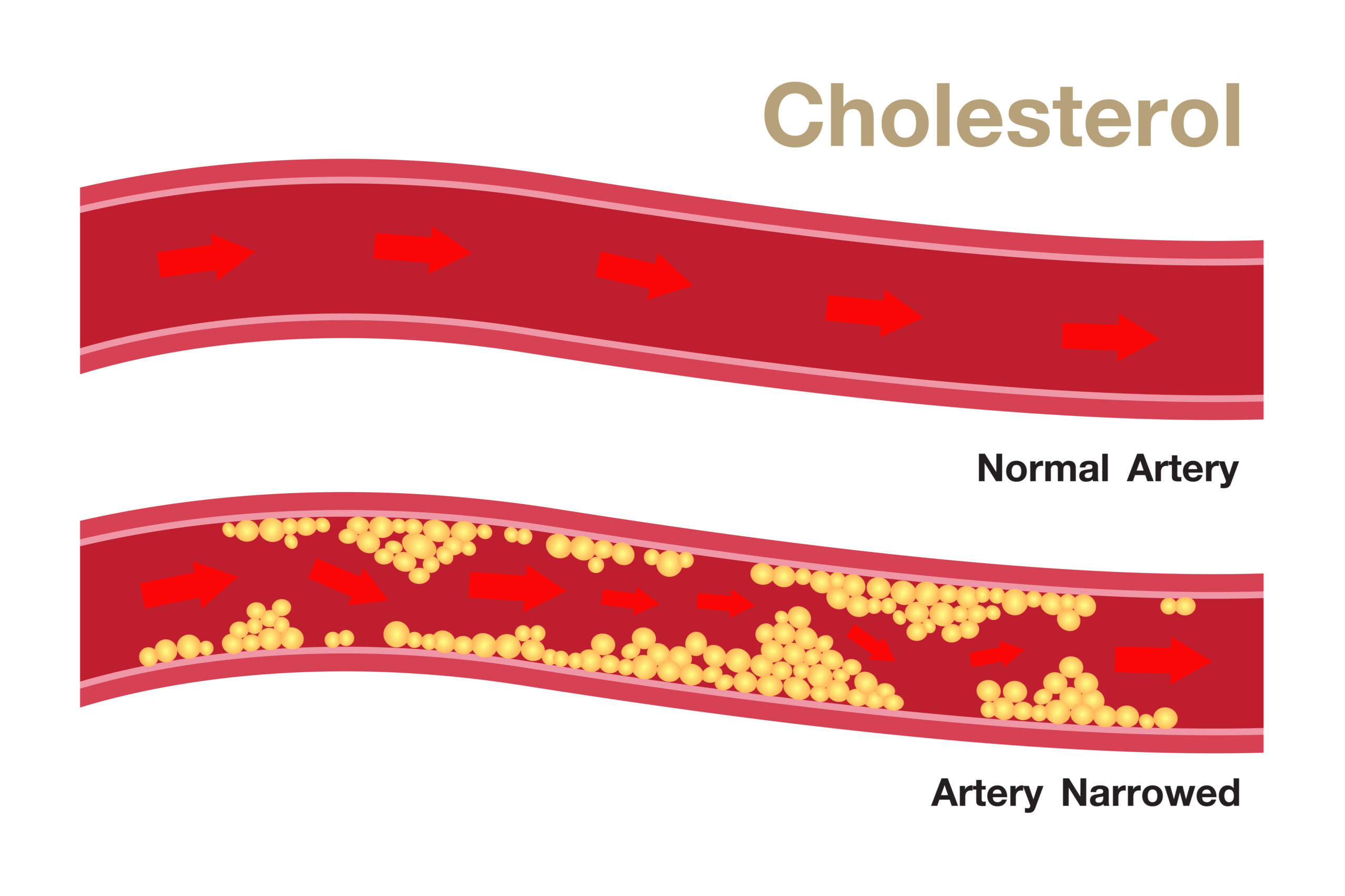I walked out of a recent primary care doctor visit with an unexpected bit of genetic family history!
After a cursory review of my fasting blood work results, he told me high cholesterol runs in my family. He caught me off guard. He doesn’t know my family!
I didn’t know that a view into family genetics could be determined off my individual blood work. My blood work shows I have very good cholesterol levels.
I tremendously value this piece of medical history / information he gave me because the more we know, the better prepared we can be.
So, what is cholesterol? And where does it come from?
“Cholesterol is a waxy substance. It’s not inherently ‘bad.’ Your body needs it to build cells and make vitamins and other hormones. But too much cholesterol can pose a problem.”*
“Cholesterol comes from two sources. Your liver makes all the cholesterol you need. The remainder of the cholesterol in your body comes from foods from animals.”*
So of course, I had to pick up the phone to call a family member. It turns out, my doctor certainly knew more than I did! My maternal grandfather struggled with his cholesterol levels so significantly that the Veterans Administration (VA) enrolled him in a study to gain a better understanding of why his body was producing so much cholesterol.
After following different diet and exercise regimens that the VA suggested, it appeared that diet had less effect on his cholesterol than it should have. His body (liver) was over-producing it. Various medications to lower his cholesterol failed to help. Daily walking exercise helped some, but not significantly.
It seems prescribing medication to moderate / control cholesterol levels is quite common. But, before medication can be an option – as with any condition, the patient must be aware and any abnormal cholesterol levels must be identified and properly diagnosed. “In England and Jordan, about half of individuals with high cholesterol were unaware of their condition. In the United States, only 16% were unaware.”**

Are you familiar with the term “non-communicable diseases”? As shared by the World Health Organization, NCDs are responsible for 71% of deaths globally. The WHO states that the top four NCD deaths are: cardiovascular diseases, cancers, respiratory diseases, and diabetes.
According to the WHO, NCDs are known as chronic diseases and “are the result of a combination of genetic, physiological, environmental and behavioral factors.”
NCD risk factors include: raised blood glucose levels, raised blood pressure, raised total cholesterol, insufficient physical activity, and excess weight/obesity.
In my case, my primary care doctor said that my consistent exercise routine is counteracting my family history! It’s amazing and motivating to know so many small things I do consistently seem to be benefiting my health. And truth be told, they all integrate pretty smoothly into my daily life dynamic.
I work out around 30 minutes a day, most days. I eat clean. I get adequate sleep. I do all these things consistently. And it feels good. My body, my health, my mind thrive because of it.
My loved ones and I spend our downtime enjoying leisurely, positive activities and we surround ourselves with a solid group of close friends and extended family! We laugh and we have fun. We enjoy life!
I do not miss my doctor appointments. Staying consistent and staying positive – two things I promise myself I’ll never waver on.
My parents both closely monitor their cholesterol levels. They are proactive and consistent with their doctor checkups.
The VA’s website recommends that people stay proactive and “request a blood test that provides separate levels of ‘bad’ (LDL) cholesterol and ‘good’ (HDL) cholesterol.”*** An optimal HDL level “should at least be over 40” and the “LDL level should be under 100.”***
Advice from the VA regarding high risk cholesterol levels includes exercise and a healthy eating plan.***
In a recent study it showed that individuals with respiratory disorders, higher rates of allergies/hay fever, cardiovascular disorders, and cardiovascular risk factors (i.e. high cholesterol/high blood pressure) were more often associated with individuals with Chronic Migraine compared to those with Episodic Migraine.
“Migraine, a common and disabling disorder, can be subtyped as episodic migraine (EM) or chronic migraine (CM) based on the frequency of headache days.”****
EM = fewer than 15 days per month of frequency of headache.
CM = “15 or more headache days per month over the past 3 months, of which at least eight headache days meet criteria for migraine without aura.”****
Since 2014 I have lived with chronic migraine.
A few suggestions by the American Heart Association to improve cholesterol levels include: focusing on eating a variety of vegetables, fruits, whole grain foods, fat free/low fat milk products, salmon, albacore tuna, unsalted nuts, lean meats, and using olive oil.
There is nothing to be gained by letting our cholesterol levels climb up. By being mindful of what we are eating and how much we are moving our body, we can reduce our risk factors for many less-than-desirable conditions. Let’s do it!
*Source: https://www.heart.org/en/health-topics/cholesterol
***Source: https://www.washingtondc.va.gov/healthtips/cholesterol.asp
****Source: Sociodemographic and comorbidity profiles of chronic migraine and episodic migraine sufferers, D C Buse, A Manack, D Serrano, C Turkel, R B Lipton, Feb. 17, 2010
Coming next: Migraine effect on cardiovascular health controversial
Please consider sharing this article with family, friends, neighbors, coworkers. Let’s help each other reach optimal health.
